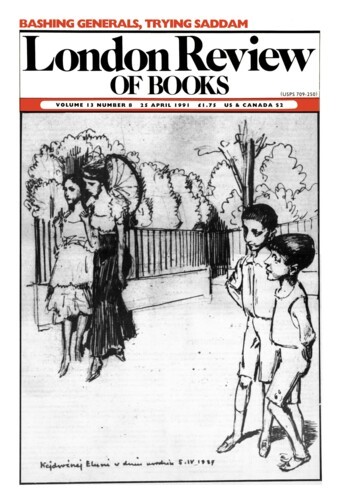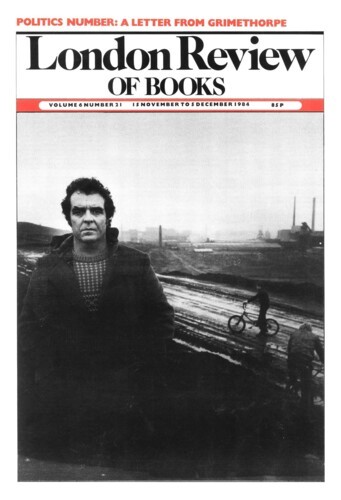Chinese Leaps
Jon Elster, 25 April 1991
Nobody really knows what’s happening in China. Analysis must proceed from triangulation, relying on a few uncontroversial facts, specific knowledge about the Chinese past and general knowledge about the dilemmas and solutions that emerge in countries in similar predicaments. History matters for a number of reasons. One is that similar causes tend to produce similar effects. China’s topography, weather and soil impose perennial constraints on warfare and agriculture. A striking example is found in Jonathan Spence’s The Search for Modern China: ‘Chiang Kai-shek [in 1949] had roughly the same range of options that had faced the southern Ming court once the Manchus had seized Peking and the North China plain 305 years before. He could try to consolidate a regime in central or southern China, perhaps in Nanjing, relying on the Yangzi river as a natural barrier; he could try to consolidate in the south-west, or establish a coastal base in the Ximan region of Fujian or in Canton; or he could use Taiwan as a base, as Koxinga [a naval warrior fighting the Manchus in the 1650s] had done.’ Even more obviously, Chinese agriculture is dominated by immutable natural conditions. It is not surprising that Karl Wittfogel, perhaps the foremost advocate of geographical determinism in our century, was also a specialist on China.





